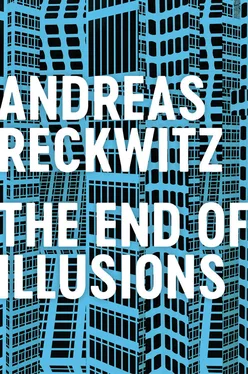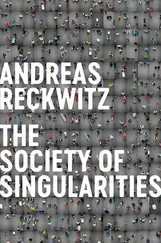One should not forget, however, that the discourse of Romanticism was a countercurrent against the powerful river of the Enlightenment. The latter had formulated, especially during its early stages, a concept of culture that was largely based on the general. If culture denotes that which is regarded as valuable, then the concept espoused by European idealism was based on a common human culture, a “humane” culture. In this concept of culture, which is epitomized in Friedrich Schiller’s disquisition On the Aesthetic Education of Man , not only are aesthetics and ethics closely intertwined – beyond that, culture and civilization were not (yet) pitted against one another. 31The goal was to achieve a synthesis between the value of culture and the norms of sociality. During the past few decades, this cultural universalism has been discredited in political and cultural debates – and, at first, justifiably so. Among other things, it was shown to be elitist and ethnocentric. The universalism of culture was regarded as a conceited idea, in a dual sense. In short, the cultural standards and goods of a small group – the European bourgeoisie – had been exalted as the generally binding measure of things, and thus everything that deviated from it was classified as something inferior. The result was high culture’s arrogant disdain of popular culture, and the European or Western feeling of superiority over non-Western cultures.
Today, for good reason, such cultural universalism hardly has any institutional support. Like Eagleton and Jullien, however, I would like to propose that a critically applied and advanced orientation toward cultural universality might in fact represent a desideratum within the framework of a society of singularities. The transformation of the postwar era’s culturally homogeneous and socially egalitarian societies into multi-ethnic and multi-religious societies – not to mention their differentiation into socio-cultural classes – raises the question of what is, and should be, culturally valid for everyone . Over the course of this social transformation, it has become an urgent matter to ask what might serve as common reference points of value – whether in a city or a region, within a nation state or within supra-national contexts such as the European Union, and ultimately in global society as a whole. The question of what is culturally valuable for all people, regardless of their ethnic, religious, or socio-cultural affiliations and regardless of their individual lifestyle preferences, is, however, a question of the general .
It goes without saying that, even on the theoretical level, it is not exactly easy to model such a culture of the general within the framework of late-modern society. To do so, it would be necessary to reconcile the universal with the heterogeneous , and to regard the general not as something prescribed but rather as a process of working toward generality. Contrary to the bourgeois notion of cultural universalism, there “is” no a priori universal of culture; within the framework of a national society – in France, Great Britain, or Germany, for instance – there is, rather, a dynamic and open process of negotiating what should be recognized as commonly shared and binding for everyone in the country. The universal is not a given; instead, it consists of cultural practices and norms that are always in a state of change. It does not necessarily have to be negotiated on the level of global society. For the time being, it is more likely the case that smaller units such as nation states, or even individual cities and neighborhoods, will take the initiative to determine what should be culturally universal for their own residents. Here, the universal is limited to those who live in such places, for whom it should be equally valid.
Such a general understanding of culture could apply just as much to the value of personal development, gender equality, family, and solidarity as it could to professional achievement, historical awareness, and certain practices of education, technology, and sports. It could apply to the way that we deal with nature, as well as to the way that we interact in public or digital space. The value of art, books, architecture, and other cultural artifacts could also be universalized in this sense. In principle, this will always involve an unending effort of working toward the universal – an incessant act of “doing universality,” which will always require revisions. Unlike cultural essentialism, such a culture of the general is not based on the (existing or desired) homogeneity of a community but, rather, on the inescapable cultural heterogeneity of late-modern society , which provides the reservoir for negotiating the general. 32Here, the heterogeneity of the cultural is simply a fact that has to be dealt with and not, as in the case of diversity in hyperculture, an occasion for unconditional appreciation. The culture of the general therefore does not follow a market logic; it fosters neither antagonism between collectives nor apathy about their differences. Instead, it follows a logic of universal participation , though at the same time it requires that all sides make an effort toward enculturation .
This raises the question of the extent to which “doing universality” (on the part of a culture of the general) can go beyond being a theoretical construct and achieve actual relevance. Even under late-modern conditions, one central medium of working toward cultural generality is the sphere of the law – and especially constitutional law – given that it is concerned not only with neutral procedures but also with the matrix of value itself. Another potential medium could be the media-based and political public sphere, even though the digital revolution has done much to place its legitimacy under question. Finally, and above all, educational and cultural institutions – schools, universities, museums, the theatre, etc. – can also play a role in achieving this end.
The practical challenges of working toward cultural generality become especially clear in the case of museums. Museums represent a booming nodal point of the global creative economy, with its markets, its selective cultural consumers, and its celebration of diversity. At the same time, they have also, in certain places, become the focus of cultural essentialists and their identity politics. Could they become a locus of cultural generality that encourages critical reflection about the common features within heterogeneity – about the commonalities within global society, the commonalities within Europe, or the commonalities within a political nation? 33Here, working toward what is collectively shared in common concerns the past and its vestiges, as well as the present and the future. Of course, museums can fixate on propagating a homogeneous group identity, or they can celebrate cultural diversity and things of individual interest. Yet they can just as well participate in working toward the general by acknowledging the heterogeneity of culture while simultaneously reflecting the common reference points of social praxis by focusing on commemorative culture, the shape of the future, and aesthetic shortcomings, or by thematizing current problems. The educational system, too, faces the challenge of promoting a culture of the general. Since the 2000s, schools have become the venue of numerous cultural conflicts, especially in Europe and North America. Steered by the model of hyperculture, they have had to foster values such as individual talent and cultural diversity, and yet cultural essentialism has demanded that they bolster the formation of national identities. In contrast to this, schools could work toward cultural generality by respecting the heterogeneity of their pupils and functioning as commonly shared places of learning in which everyone – regardless of his or her ethnic, religious, or social background – is taught the same norms and practices that are educationally valuable, socially valuable, and conducive to peaceful coexistence. 34
Читать дальше









